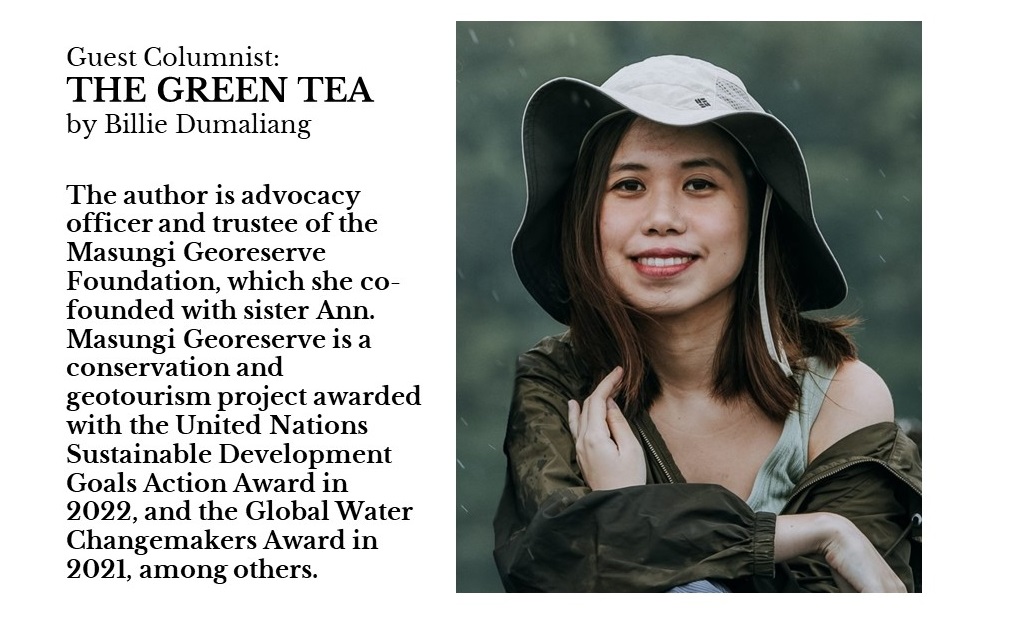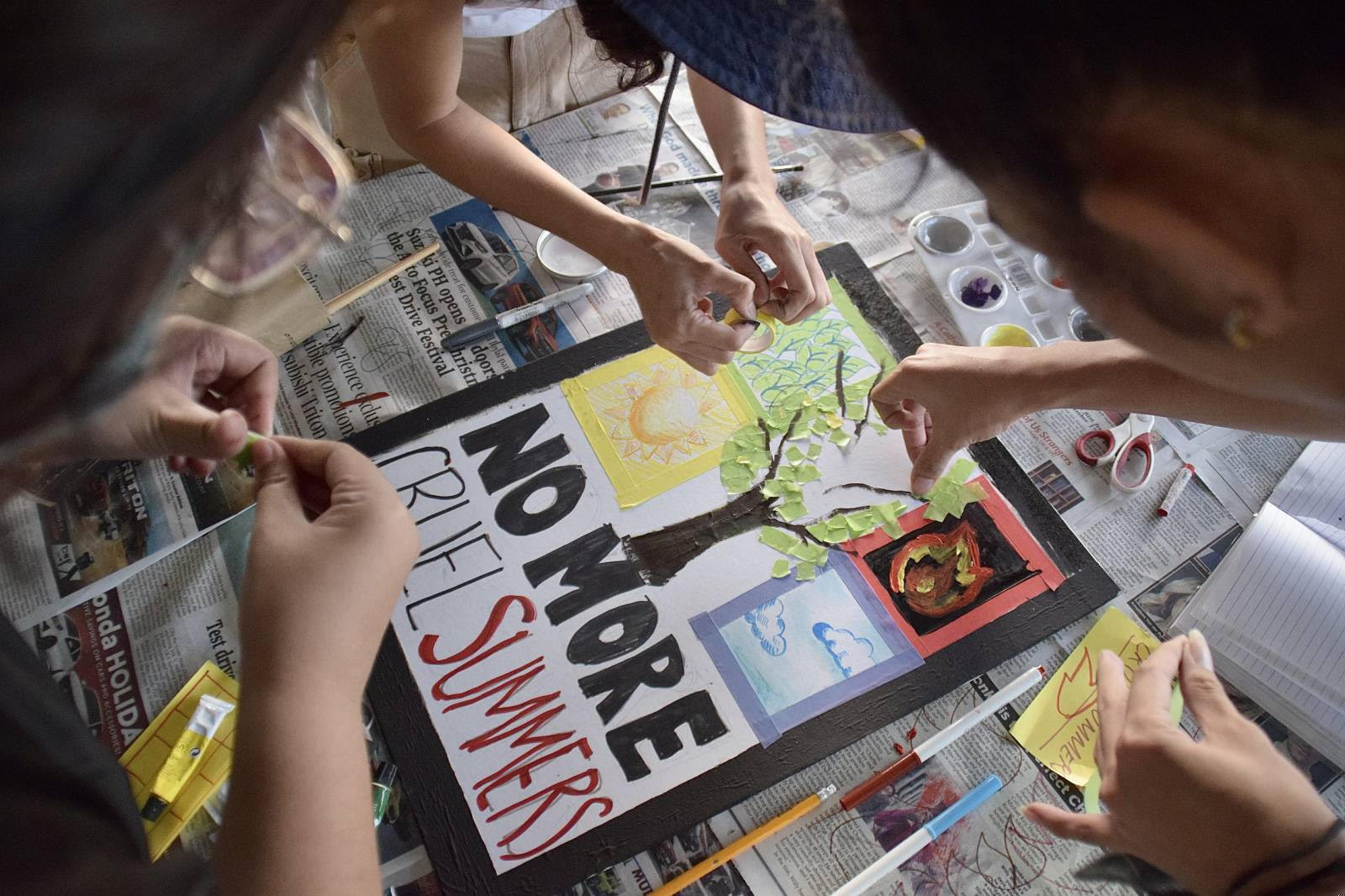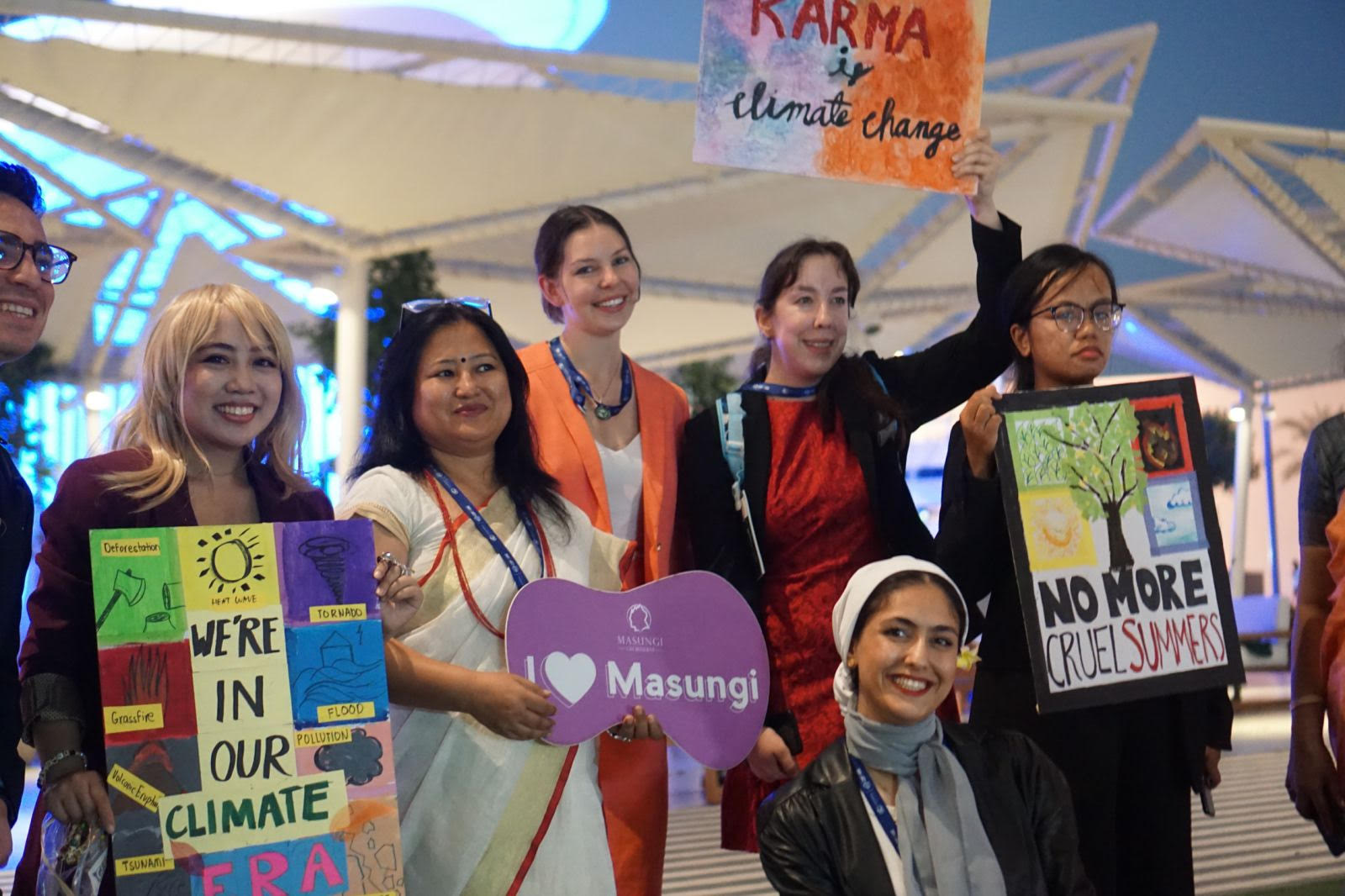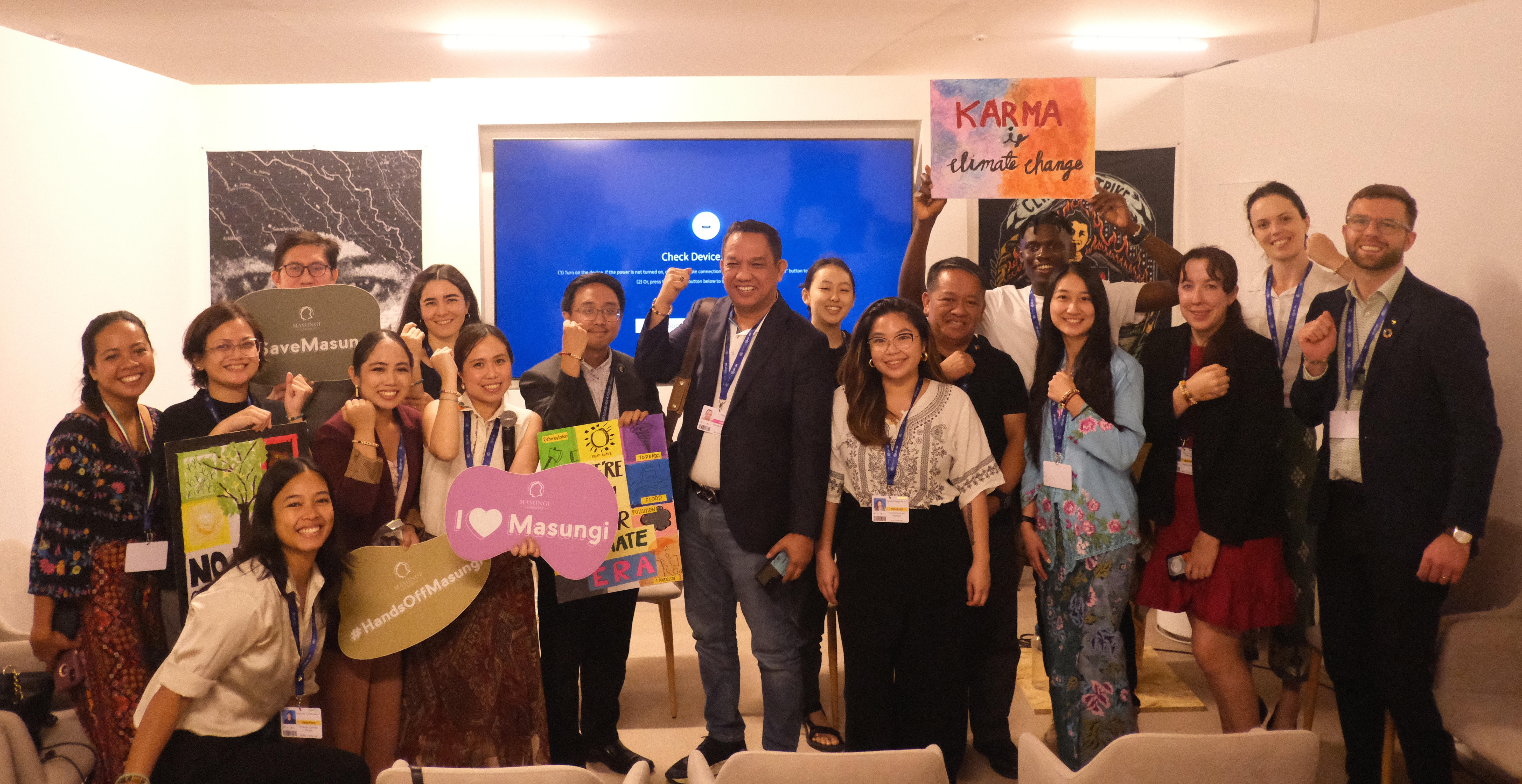THE GREEN TEA — On authentic civil society engagement in nature and climate

As the echoes of the 28th Conference of Parties of the UN Convention on Climate Change (COP 28) fade, I find myself contemplating the essence of genuine civil society involvement in the realms of nature, climate, and governance. This introspection stems from my organization's inaugural participation as an official observer at these pivotal international climate discussions.

Admittedly, I am far from an expert in these complex negotiations, but our modest delegation embarked on this journey with dual goals: to absorb knowledge and to amplify our commitment to environmental stewardship and nature-based climate solutions, notably through the Masungi Geopark reforestation initiative in Rizal province.
Our involvement began on a disheartening note. Various civil society organizations, dismayed by the perceived exclusion from the Philippine delegation's activities, voiced their concerns.

A coalition, including the Philippine Movement for Climate Justice, Caritas Philippines, and the Center for Energy, Ecology, and Development (CEED), issued a statement at the summit's commencement. They urged the Philippine delegation, under the leadership of Department of Environment and Natural Resources Secretary Ma. Antonia “Toni” Yulo-Loyzaga, to embody the spirit of solidarity characteristic of the Filipino community. The statement emphasized the imperative of climate justice and sustainable development, rooted in current realities and pivoting toward a just energy transition that centralizes the people and their voices.
These sentiments resonated with us, especially given our own experiences of unheeded communications with officials, adversely impacting environmental conservation efforts and the security of frontline defenders. Although there were dialogues between civil society organizations and select members of the Philippine delegation in the coming days, the content and outcomes of these discussions remained elusive to me.

However, a beacon of hope emerged when members of the House of Representatives delegation to COP 28 engaged in a fruitful dialogue in “The Climate Era” session we hosted together with Reboot Philippines at the Civil Society Climate Justice Hub. Representatives Anna Veloso-Tuason, Ferdinand "Didi" Cabredo, and Jose Manuel Alba from the Climate Change Committee, alongside Kabataan Partylist Representative Raoul Manuel, demonstrated commendable leadership. They were presented with case studies highlighting the potential threats of renewable energy projects to critical wildlife habitats, such as the Masungi Karst Conservation Area and the Northwest Panay Peninsula National Park. This open dialogue culminated in an invitation to civil society to formally report these cases to Congress, enabling the institution to take appropriate actions.
This receptiveness and willingness of elected officials to engage directly with citizens' concerns epitomizes courageous leadership — a quality that thrives on listening and facing potentially uncomfortable discussions head-on, where transformative resolutions can emerge.

Notable achievements like the inauguration of the first Philippine pavilion at the Climate Change conference and the country's acquisition of a seat on the Loss and Damage Fund Board are commendable yet modest victories. These should be pursued with unwavering commitment to accountability, inclusivity, and compassion, ensuring that the voices of the most affected are not just heard but are integral in shaping the policies that govern our collective future.